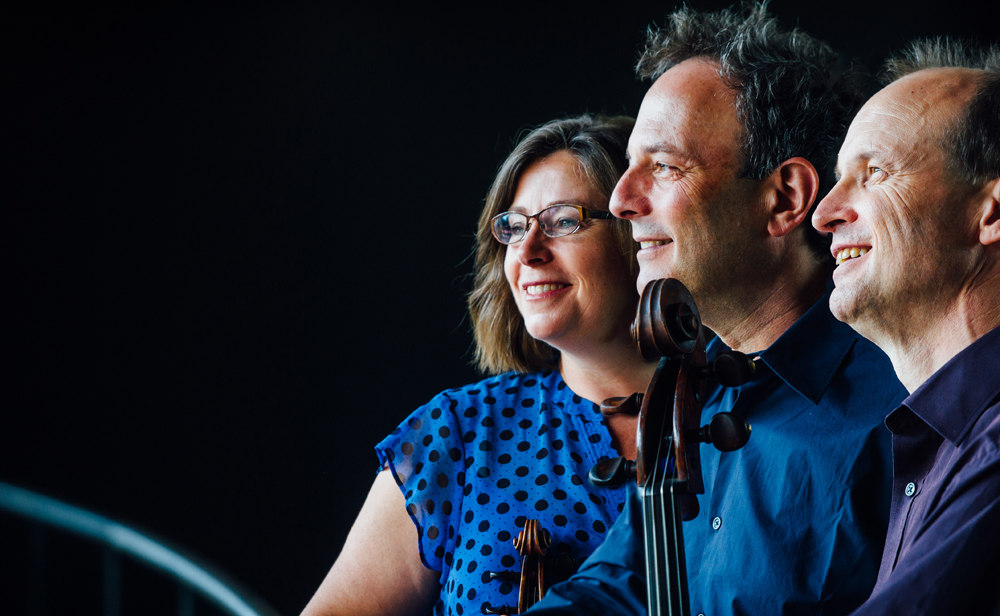
NOT many ensembles undertake Tchaikovsky’s only piano trio. Its wide-ranging scope and the difficulties it presents, particularly to a pianist, put it outside many groups’ field of vision.
The Goulds, however, are not easily intimidated. They have recorded it, and preceded it here with Fanny Hensel (née Mendelssohn, Felix’s elder sister) and our own Judith Weir.
Tchaikovsky was pretty cut up by the death of his great friend Nikolai Rubinstein, the pianist who co-founded what became the Moscow Conservatory and also premiered Balakirev’s notorious Islamey.
After a summer of sorrow, he wrote his only piano trio over the Christmas period 1881-2, To The Memory Of A Great Artist. It reflects both the composer’s grief and the personality and prowess of Rubinstein.
The Gould’s success with the piece, played after the interval, depended to a great extent on the supreme control of its pianist, Benjamin Frith. His extremely rapid arpeggios in the opening movement, for example, were tastefully suppressed, so that balance with the strings was never under threat, and he kept his greatest intensity for the big climax after the central Adagio of this huge movement, from which the ensemble subsided gracefully.
The theme and 12 variations of the second movement, some of which are quite short, represent Rubinstein’s mercurial charm and incidents in his life, although Tchaikovsky is not specific about the details. So they require a chameleon-like response from the players. The Goulds were more than equal to the task, flashing between moods as to the manner born.
After the early repetitions of the folksong-style theme – sweetly eloquent in Lucy Gould’s violin, richly autumnal in Richard Lester’s cello – the two strings combined in tasty duet before Frith brilliantly evoked a musical box in Variation 6.
The succeeding waltz was sheer delight, while the Fugue was notable for the clarity of its individual voices. Frith really came into his own in the mazurka, where he evoked Chopin. The five-minute cut authorised by Tchaikovsky made the final variation and coda much more persuasive than if given complete.
Although going hell for leather, the players remained keenly aware of each other’s roles, while the closing funeral march, echoing the very opening of the work, was a tear-jerker. The work had sounded far better than this listener had thought possible. Indeed, I bought the disc.
Fanny Mendelssohn has only in recent years begun to be recognised for the superb composer she was, having languished far too long in her brother’s shadow. Her Piano Trio in D minor was written in 1846, the year before her death, although not published till 1850. So she never heard it, in public at least.
The work opened the evening. At once it was clear that the players were listening and responding to each other in the pleasing Allegro, and there was an equally charming lightness of touch in the gentle Andante. The 3rd movement, Lied, with its piano prologue, reached a surprisingly emphatic climax. In the finale, the Goulds again allowed the music to speak for itself – not as easy as it sounds – and this time its climax was beautifully prepared.
Judith Weir’s Trio – the first of two so far – dates from 1998 and is a beguiling piece. Although not programmatic, it is inspired by locations. The Venice of Schubert’s solo song Gondelfahrer (Barcarole) lies behind its opening, and it was easy to sense the bells of St Mark’s and the lights twinkling on the water, although the gondolier seemed to be making heavy weather of his paddling.
Scurrying strings with piano interjections marked the opening of the scherzo, with fiercer, lower timbres in its more accented trio, the two eventually coming into collision like satellites swerving off course.
African energies had been the inspiration here. Darting melodic snippets, looking for an alliance, resulted from her vision of deserted Hebridean beaches in the finale. This is spacious writing, gloriously uncluttered, and the Goulds revelled in it: music to hear and hear again, especially when played with such love.
Review by Martin Dreyer
